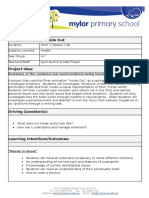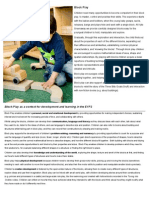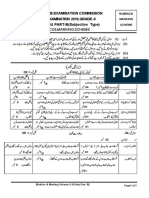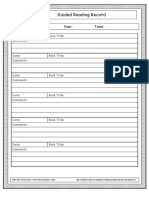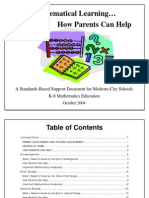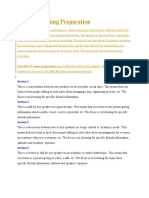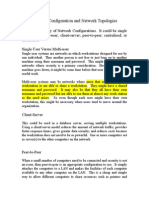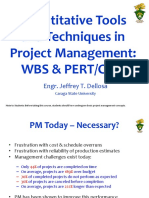0% found this document useful (0 votes)
194 views4 pagesSpeaking PART 1 QUESTIONS AND TIPS
This document provides sample questions for the IELTS Speaking Part 1 exam. It lists common topics that may be discussed, such as work, study, home, childhood, neighborhood, and free time. For each topic, it provides 2-4 sample questions an examiner may ask to learn more about the examinee. It also provides tips for practicing for Part 1, such as having sample responses prepared, recording practice sessions for self-evaluation, focusing on fluency and grammar, and being comfortable discussing a range of topics. Regular practice and preparation is key to performing well in Part 1 of the IELTS Speaking test.
Uploaded by
navneetsethi004Copyright
© © All Rights Reserved
We take content rights seriously. If you suspect this is your content, claim it here.
Available Formats
Download as PDF, TXT or read online on Scribd
0% found this document useful (0 votes)
194 views4 pagesSpeaking PART 1 QUESTIONS AND TIPS
This document provides sample questions for the IELTS Speaking Part 1 exam. It lists common topics that may be discussed, such as work, study, home, childhood, neighborhood, and free time. For each topic, it provides 2-4 sample questions an examiner may ask to learn more about the examinee. It also provides tips for practicing for Part 1, such as having sample responses prepared, recording practice sessions for self-evaluation, focusing on fluency and grammar, and being comfortable discussing a range of topics. Regular practice and preparation is key to performing well in Part 1 of the IELTS Speaking test.
Uploaded by
navneetsethi004Copyright
© © All Rights Reserved
We take content rights seriously. If you suspect this is your content, claim it here.
Available Formats
Download as PDF, TXT or read online on Scribd
/ 4


















